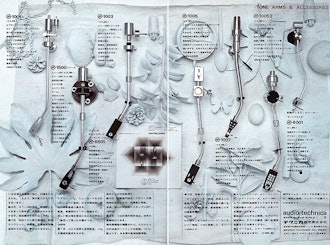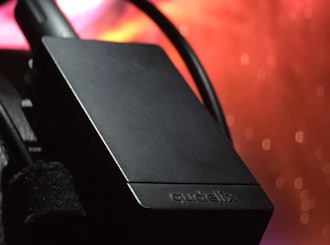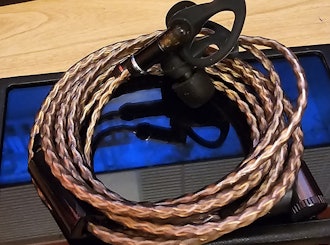Click to view our Accessibility Statement or contact us with accessibility-related questions












Showing 1 of 11 conversations about:

al.stroh
41
Jul 23, 2016
bookmark_border
Related Posts

storyboardtech
Finding your groove: getting into vinyl with Audio-Technica
I’d like to think that I could’ve been friends with the late Hideo Matsushita, founder of Japanese Hi-Fi powerhouse Audio-Technica. If I could, I’d travel back in time to 1960’s Tokyo, where a young Matsushita curated “vinyl listening sessions” at the Bridgestone Museum of Arts, exposing visitors to the sounds and possibilities of high end audio and the warmth of vinyl records. I imagine sitting with him in a mod coffee shop, listening to the stories of what he witnessed in those sessions, the conversations he had with visitors, and what ultimately motivated him to head back to his small apartment above a ramen restaurant and start an audio company of his own. In the histories I’ve read regarding AT’s humble beginnings, Matsushita’s motives seem clear. Produce high end audio at affordable prices, bringing audio excellence into spaces and to customers that simply didn’t have access to it before. His first two products, the AT-1 and AT-3 phono cartridges did exactly that, and...
Dec 6, 2023
bizarcane
I'm interested to learn about the fit of these IEMs; from an outward appearance, they look like they're designed to pop right out of the ear. I can't see a structure that might help them sit within the ear well. Anyone have insight here?
Apr 19, 2024

Paulskii
Are there any official/unofficial replaceable headbands/head cushion for the DT 177X GO? My current one has gone through some wear and tear and is in need of being replaced. Anybody have any sources they can share?
Apr 19, 2024

monte543
This says "Estimated ship date is April 19." Is it still ok for me to make the purchase on the 20th or 21st?
Apr 16, 2024

Viltaria
Would Drop be able to provide power-adaptors (plugs) for those based in other regions (Euro, Oceania, Asia, etc)?
Apr 14, 2024
Trending Posts in Audiophile

Simthaniel
Rigs
Modded headphones with qudelix at the core
When I received the Qudelix 5K, I had already modified a pair of Superlux HD-681 headphones. I previously soldered my own balanced connections to the drivers, providing multiple ways to connect and...
Apr 14, 2024

brothamike
A decent set of IEMs
I am in the midst of a 300 hour burn-in but, I will say I am enjoying how this set sounds so far. Before I received these which was btw late by a few weeks, I purchased a Sony/Kimber Kable MMCX...
Apr 12, 2024
merrick97
Should I exchange the PC38X for better headphones?
I bought the PC38X headphones FOR GAMING and they are great, but I have NO use for a Microphone since I don't do competitive gaming and I was wondering if there were better headphone options at a similar price without a headphone, where (presumably) more of the cost was put into making it sound better. I also find that my PC38X don't get quite as loud as I would like and I was wondering if a cheap amp like the iFi Go link would draw a little more volume out of my phones. https://www.amazon.com/dp/B0BN6MM822?psc=1&ref=ppx_yo2ov_dt_b_product_details I went with the PC38X since it was considered the best bang for buck headphones. I care most about using spatial apps like DOlby Atmos and DTS Headphone:X. Suggestions are welcome.
Apr 11, 2024

LostnAmerica
Sound Signature of the Grell Project.
Wondering what type of sound signature the Drop Grell project headphones will have or trying to attain. Any update would be appreciated.
Apr 8, 2024

Fabulous
Looking for a gaming/content audio setup
Hello! I'm looking for recommendations on audio setups. I'd be planning on using it mostly for gaming. Preferably I'd like a pair of large closed back headphones since I have a big head and jaw. I'd also like to hear myself through my mic with mic monitoring. As far as budget goes, I don't really have one. But under 600$ would be nice. I can go higher if needed. The audio setup would be connected to a high performance PC. Thank you in advance for any recommendations!
Apr 4, 2024

1plsd
$10 Drop Coupon Email not sent?
Trying to buy some gear off Drop for the first time. I was told I would receive an email with a welcome to drop $10 off promo. I never received that email. Drop was able to send me emails for my login token and email for Password update. But for some reason the $10 off coupon was never sent to me.
Mar 31, 2024

NMPacella
New here
Hello, I just joined, primarily for the audiophile products. Looking at purchasing the NHT C3 speakers for our new living room. Space is about 15 feet wide by 33 long and they will fire long ways. Space is just for general listening, music room with all equipment is downstairs, so hoping they will fill it with sound nicely. Cheers.
Mar 18, 2024



Faced with a divorce, that system didn't stick around for long and after the divorce, there just wasn't enough money anymore to justify spending much at all on audio gear. Slowly though, over the years, I drifted back and forth between new and used gear, never finding anything that actually 'tripped my trigger' but occasionally I learned something that I DIDN'T know about audio gear.
About one and a half years ago, I took the plunge into studio quality gear for the first time. My son is an audio engineer, so I had plenty of guidance on the subject. I've played guitar since I was 12 years old (I'm retired and in my 60's now) and I've always wanted to do some recording, just so my two sons have something audible to remember me by when I leave this world for whatever waits on the other side. All my gear now uses balanced XLR connections, which if you don't already know provides a pitch black background for audio. There is ZERO noise floor and the music literally jumps out of the speakers and into your face like a splash of very cold water on a hot day. To say that it's quiet is an understatement in the extreme and, compared to 'old school' RCA interfaces, it's like night and day.
Since all my gear is of 'pro audio' quality and everything uses XLR connections, when you cue up a track, but don't start it, and crank the volume knob to 100%, there's absolute silence coming from the speakers. Nothing, nada, zip. That also applies when I'm listening thru my AKG K712 Pro headphones, which are some of the most revealing cans I've ever listened through. Obviously, I don't leave the volume knob turned up all the way and keep it between 9:00 and 10:00 (10:30 if I REALLY want to get my neighbor's attention!). ALL the gear is so revealing that, with a few exceptions, recorded tracks by well known artists reveal issues with the engineering that have REALLY surprised me. And that, to me, is the downside of Pro Audio and listening to music through extremely revealing gear.
That didn't happen overnight, by the way. My $20K system wasn't nearly as revealing as what I have now, which only set me back around $4K. I think it's the total absence of noise being generated by the hardware that makes the music, along with all its flaws, stand out in MUCH greater detail than it ever did when I owned and listened through 'home' (conventional) audio gear.
I'm not sure I even know what the true definition of an 'audiophile' really is, but I certainly don't consider myself to be one. I've had standards over the years and have had plenty of gear to compare to other more and/or less expensive gear. In the end, I don't think price has as much to do with the end result as the INTERFACES do. For me, XLR removed any and all coloration from the signal path, and no, I did NOT spend a fortune on cables. I don't think you can buy a 'bad' XLR cable, regardless of price since the interface itself effectively eliminates line or otherwise induced noise.
What I THINK is the case is that standard/home audio gear has issues that are inherent to the design. Unbalanced cables and interfaces just make noise, where balanced XLR cables and interfaces do NOT. I didn't know that until my son explained it all to me, but that was after he let me discover it on my own. I had one of those 'jaw-dropping' moments.
To me, what GOOD audio gear provides is a clear and clean representation of what and how an artist was feeling when a track was recorded. The interaction between the musicians and their placement within the soundfield, the tonal character of the vocalist, the pluck of guitar strings or the pounding of a kickdrum ... all of it ... when faithfully recorded and engineered properly will reveal things you never heard before, with a precision and clarity that can sometimes be ... well ... jaw-dropping. All that takes is reasonably good hearing, an expectation of excellence and faith that your gear WILL reproduce what the engineer and, more importantly, the artist intended for you to hear.
That's not being an audiophile. That's just being a GOOD LISTENER.